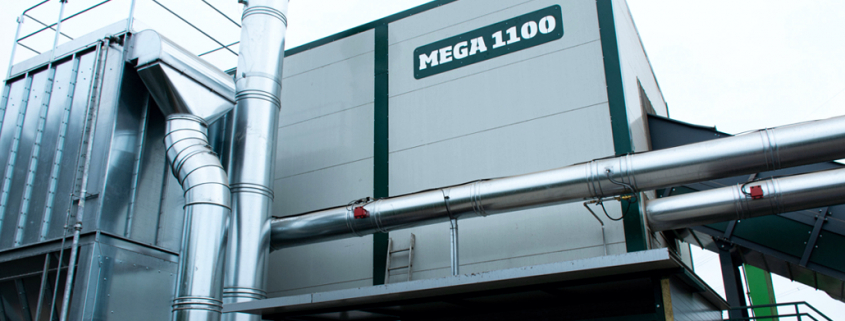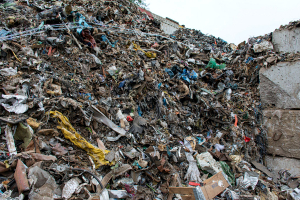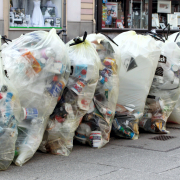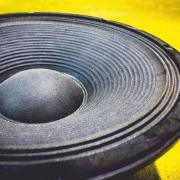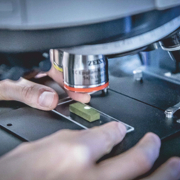Technological Progress of Processing Ferrous Scrap
Josef Schuster GmbH has been active in the collection and processing of ferrous scrap for over 30 years. Martin Schuster, who took over the management of the family-run company located in Asten near Linz in 2016, leads the business aiming at productive and economic renewal. With this in mind, the company has increased the quality of the internal treatment cycle by installing two solutions supplied by Panizzolo Recycling Systems. Therefore, the Italian-based company talked to Martin Schuster about why they decided to work with Panizzolo Recycling Systems.
When was Schuster Metall-Recycling GmbH founded, and what has changed ever since?
Founded by my parents in 1985, the company focused on the collection and trade of scrap metal. In 2016, with my entry into the company management, we diversified and increased the type of metal collected, allowing us to grow our business, quadrupling the workspace and taking it from the initial 4,000 m² to today’s 16,000 m². Over the years, we have expanded our range of activities to include other waste such as paper and wood waste. However, we still focus on the collection and treatment of metal and ferrous scrap.
Can you tell us more about how you work and how you have positioned yourself on the Austrian market?
We currently consider ourselves a medium-sized company with 25 employees, including clerks, workers and drivers. We cover all stages of the process, from the purchase of scrap to the sale of the finished product. The areas in which we work most are located in the regions of Upper Austria, Lower Austria and Salzburg, where we receive scrap from both traders and companies that generate their production waste. Once stored and sorted, the scrap is sent to one of the two Panizzolo treatment cycles. The mixed metal is sent to the plant Mega 1100 for recovering iron, copper, brass and aluminum.
Overall, the load of material circulating in our company is about 40,000 tons per year. The two Panizzolo plants – Flex 500 Mobile and Mega 1100 – allow us to work simultaneously on the two main types of scrap. The Flex 500 is used for aluminum cans, and we can process approximately 2.8 tons/hour with a total input load of approximately 10,000 tons per year. The Mega 1100 is used in processing mixed metal scrap, with a production capacity of about 20 tons/hour. The outgoing metals are sold in Austria, Germany and Italy.
Why did you decide to work with a Panizzolo hammer mill?
I wanted to introduce new technologies into the company that would allow me to work with mixed metal, a type of scrap that is increasingly found in Austria and throughout Europe in general. Therefore, I came across the Panizzolo recycling plants, finding the treatment cycle and operation of the hammer mills very interesting. I also explored other companies. However, in the end, I realized that the technologies offered by Panizzolo were the solution that suited my production and quality needs best.
I had the opportunity to see the Panizzolo plants in action during my visit to a German company, seeing the quality of the machinery and comparing myself with the experiences of the end-users. However, what convinced me is that, compared to other models on the market, the Mega 1100 and Flex 500 Mobile hammer mills can balance other production performances with low energy costs. Focusing on the treatment of post-consumer cans and mixed metals, I preferred to insert two distinct treatment lines. In this way, I can work on two fronts simultaneously, keep the outputs separate and maximize the value of the metals at the time of sale. However, the interchangeable cradle system remains a decisive aspect as it allows me to optimize the hours dedicated to maintenance.
What are you expecting for the future?
We are expecting that in the coming months, we will be able to produce up to 25 tons/hour of treated mixed metal with the Mega 1100. Because it is easy to find these scraps in Austria and throughout Europe, we focus on maximizing productive and profitable performance. However, we constantly monitor market trends, and, also thanks to the interchangeable cradle in the Panizzolo mills, we are ready to change the direction of treatment if needed.
The aspect that remains fundamental is that here in Austria, as in other European countries, our sector is increasingly moving towards using those technologies that allow a higher quality treatment of metal scrap.
(Published in GLOBAL RECYCLING Magazine 2/2021, Page 15, advertorial, Photo: Panizzolo)

